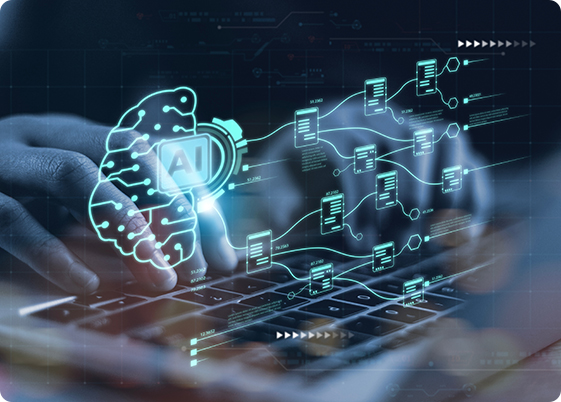What is a Customer Service Trend?
Customer service trends encompass the evolving strategies, technologies, and best practices businesses adopt to enhance customer interactions and satisfaction. As consumer expectations rise, companies must innovate to deliver seamless, efficient, and personalized service. In 2025, advancements like AI-powered support, omnichannel experiences, and hyper-personalization will redefine customer service. Trends in customer support, such as self-service automation and real-time engagement, will help businesses streamline operations while improving customer experience.
Additionally, ethical and sustainable practices will gain prominence as customers demand greater corporate responsibility. Contact center trends will emphasize human-AI collaboration, ensuring efficiency while maintaining a human touch. Companies like HGS Canada are leading the way in integrating these latest trends in customer service to enhance digital customer experiences. Staying ahead of customer service future trends will be crucial for businesses aiming to build loyalty and drive long-term success in an increasingly competitive landscape.
Key Customer Service Trends Transforming Businesses in 2025
In 2025, businesses are leveraging AI, automation, and data analytics to enhance customer interactions while ensuring seamless, omnichannel experiences. From AI-powered support to ethical and sustainable service practices, these top technology trends are redefining the way businesses engage with their customers, improving efficiency, satisfaction, and loyalty in an increasingly digital world.

AI-Powered Customer Support
AI-powered customer support is transforming the industry by delivering faster, more accurate responses. AI-driven chatbots and virtual assistants handle routine queries, reducing wait times and improving efficiency. With natural language processing (NLP), AI can better understand customer intent, creating more human-like interactions. Businesses are leveraging AI to streamline operations, personalize responses, and enhance overall customer satisfaction. Additionally, AI analytics help predict customer needs, allowing companies to provide proactive support. However, when considering human vs AI in customer experience, it's clear that while AI enhances efficiency, human agents remain essential for handling complex and emotionally sensitive interactions. Organizations are adopting these innovations to improve digital customer experiences. As AI continues to evolve, it will play a crucial role in shaping the future of customer service.
Hyper-Personalization with Data Analytics
Hyper-personalization is revolutionizing customer service by leveraging data analytics and machine learning to create tailored experiences. Companies analyze customer behavior, preferences, and past interactions to provide relevant recommendations, customized promotions, and proactive support. This data-driven approach enhances engagement, making customers feel valued and understood. By integrating AI-driven insights, businesses can anticipate needs and deliver seamless, personalized experiences across multiple touchpoints. Organizations are adopting these strategies to improve customer loyalty and retention. As personalization becomes more sophisticated, businesses that prioritize data-driven customer interactions will gain a competitive edge in delivering superior service and satisfaction.

Omnichannel Support and Seamless Integration
Omnichannel support enables seamless customer interactions across email, chat, social media, and phone. Consumers expect a unified experience, where their inquiries and history are accessible across all touchpoints. By integrating CRM tools and AI-driven insights, businesses can ensure consistent, efficient service. Companies leverage omnichannel strategies to enhance customer satisfaction and streamline support operations. This approach not only improves response times but also strengthens customer relationships by providing a smooth transition between communication channels, leading to a more cohesive and personalized service experience.
Self-Service and Automation
Self-service and automation are advancing customer support by allowing customers to find solutions independently, reducing reliance on live agents. Businesses are enhancing self-service portals, AI-driven chatbots, FAQs, and interactive troubleshooting guides to provide quick and accurate resolutions. AI-powered virtual assistants can handle routine queries, while automation streamlines repetitive tasks, improving response times. This trend not only empowers customers with instant solutions but also enhances efficiency for businesses by reducing operational costs and workload on contact centers. As automation continues to evolve, companies will refine these tools to provide seamless, intuitive, and highly effective customer experiences.

Voice and Conversational AI
Voice assistants and conversational AI are transforming customer interactions by enabling hands-free support. AI-driven speech recognition allows customers to engage naturally, improving accessibility and convenience. As AI advances, voice interactions will become more intuitive, providing faster and more accurate responses. Businesses are integrating voice AI to enhance customer experiences and streamline support operations. This trend is revolutionizing service delivery, making it more efficient and personalized while reducing reliance on traditional support channels.
Proactive Customer Engagement
Proactive customer engagement focuses on anticipating customer needs and addressing issues before they arise. Businesses leverage predictive analytics to identify potential problems, notify customers about service disruptions, and offer tailored solutions. This approach enhances customer satisfaction by reducing frustration and improving efficiency. For example, companies use data-driven insights to provide personalized recommendations, proactive troubleshooting, and timely notifications. By staying ahead of customer concerns, businesses can build stronger relationships, increase loyalty, and create a seamless customer experience that fosters long-term engagement and trust.
Human-AI Collaboration
Human-AI collaboration blends automation with human expertise to enhance customer service. AI handles routine inquiries, freeing agents to focus on complex and emotionally sensitive interactions. Advanced AI-driven analytics provide real-time insights, enabling agents to offer more personalized and efficient support. Companies like HGS Canada integrate AI tools to assist human representatives, improving response times and customer satisfaction. This hybrid model ensures a seamless experience, balancing automation’s efficiency with human empathy, ultimately driving better engagement and loyalty in the evolving customer service landscape.
Sustainability and Ethical Customer Service
Sustainability and ethical customer service are becoming essential as consumers seek environmentally and socially responsible businesses. Companies are adopting eco-friendly initiatives like paperless billing, energy-efficient call centers, and digital customer interactions to reduce their carbon footprint. Ethical customer service also includes transparent communication, fair policies, and strong data privacy measures to build trust. Businesses are implementing sustainable practices while ensuring compliance with ethical standards. By prioritizing sustainability and ethical responsibility, companies not only enhance their brand reputation but also foster long-term customer loyalty in an increasingly conscious consumer market.

Real-Time Support with Augmented Reality (AR)
Augmented Reality (AR) is revolutionizing customer support by enabling real-time, interactive troubleshooting. Industries like tech support, retail, and home services use AR to assist customers with product setups, repairs, and diagnostics. By overlaying digital instructions onto real-world objects, AR reduces the need for physical visits, saving time and costs. This technology enhances efficiency, minimizes errors, and improves customer satisfaction by providing instant, step-by-step guidance. Companies like HGS Canada are exploring AR-driven support solutions to deliver seamless and immersive customer experiences, making interactions more efficient, engaging, and accessible in an increasingly digital world.
Emotional Intelligence in Customer Service
Emotional intelligence (EQ) is essential in customer service, helping agents handle interactions with empathy and understanding. Companies train support teams to recognize customer emotions and respond appropriately. AI-driven sentiment analysis enhances this by identifying moods in real-time. Prioritizing EQ strengthens customer relationships, builds trust, and boosts brand loyalty.
Final Thoughts
The customer service trends 2025 highlight a shift toward AI-driven support, hyper-personalization, and seamless omnichannel experiences. As businesses adapt to new customer service trends, the balance between automation and human interaction remains essential. Emerging contact support trends focus on efficiency, while trends in customer support emphasize proactive engagement and self-service.
Staying ahead of current trends in customer service requires businesses to embrace customer service future trends such as voice AI, AR support, and sustainability. The customer service industry trends indicate that companies prioritizing emotional intelligence and ethical practices will gain a competitive edge.
For those exploring customer support jobs, staying updated on the latest trends in customer service and enhancing digital skills will be crucial. As trends in customer service preferences evolve, businesses must continuously innovate to deliver exceptional customer experiences.
Frequently Asked Questions (FAQs)
What is the future of customer service with AI?
AI will transform customer service by enhancing efficiency, personalization, and automation. AI-powered chatbots, virtual assistants, and predictive analytics will handle routine queries, allowing human agents to focus on complex issues. Voice recognition and sentiment analysis will further improve interactions. AI will drive hyper-personalization, providing tailored recommendations and proactive support.
How do you identify customer demand trends?
Businesses track customer demand trends using data analytics, surveys, and social media insights. Monitoring purchasing patterns, online reviews, and emerging industry trends helps predict future needs. AI-driven analytics tools also identify shifts in consumer behavior, allowing businesses to adapt products and services accordingly.
What are the biggest tech trends in 2025?
Key tech trends in 2025 include AI advancements, 5G expansion, the rise of quantum computing, and immersive technologies like augmented reality (AR) and virtual reality (VR). Blockchain will continue to enhance security, while automation and IoT will drive efficiency across industries.
What are the latest customer service trends?
The latest customer service trends include AI-powered support, hyper-personalization, omnichannel experiences, proactive engagement, and sustainability. Companies are integrating automation, self-service options, and emotional intelligence training to enhance customer satisfaction while maintaining efficiency.
 Canada
Canada Colombia
Colombia India
India Jamaica
Jamaica Philippines
Philippines UK
UK US
US SA
SA
